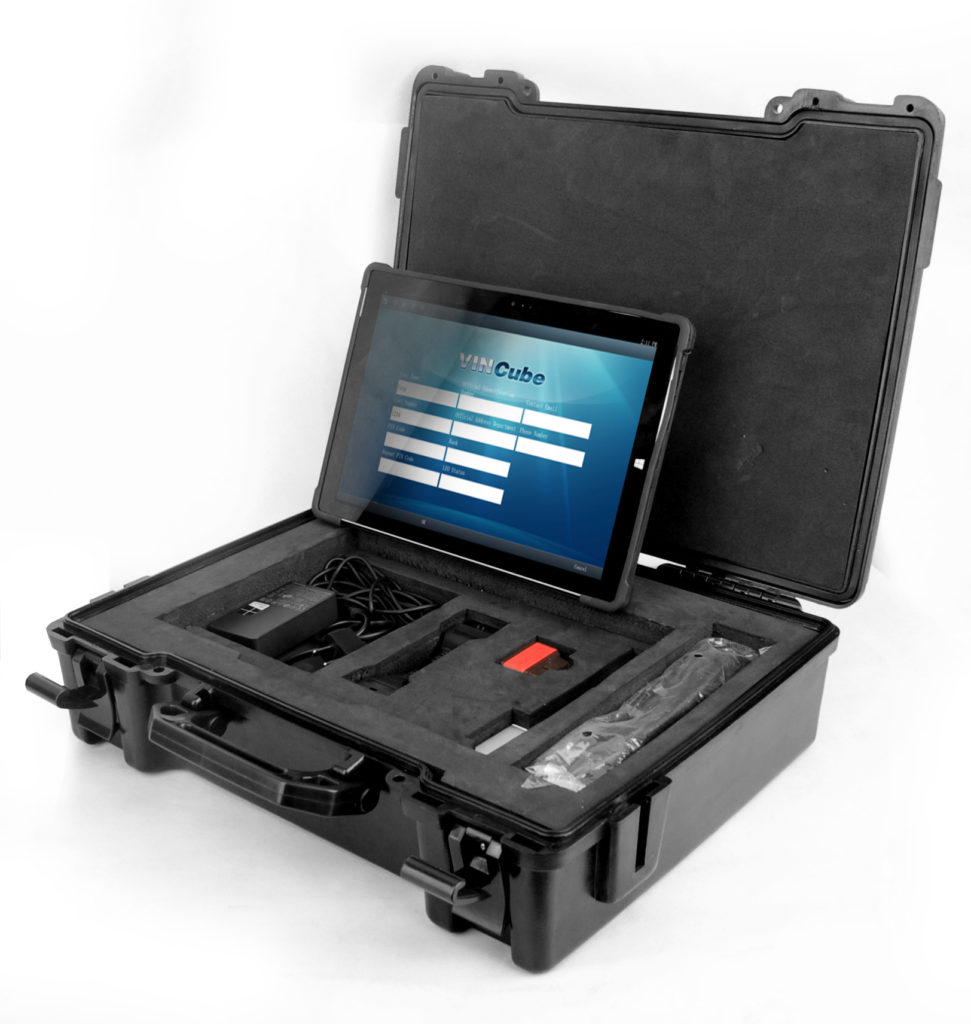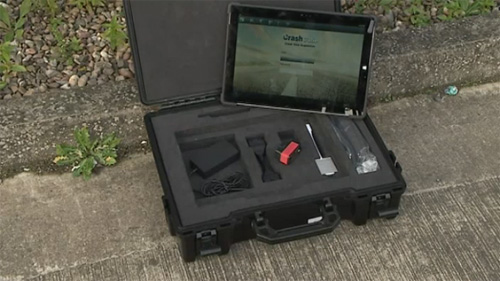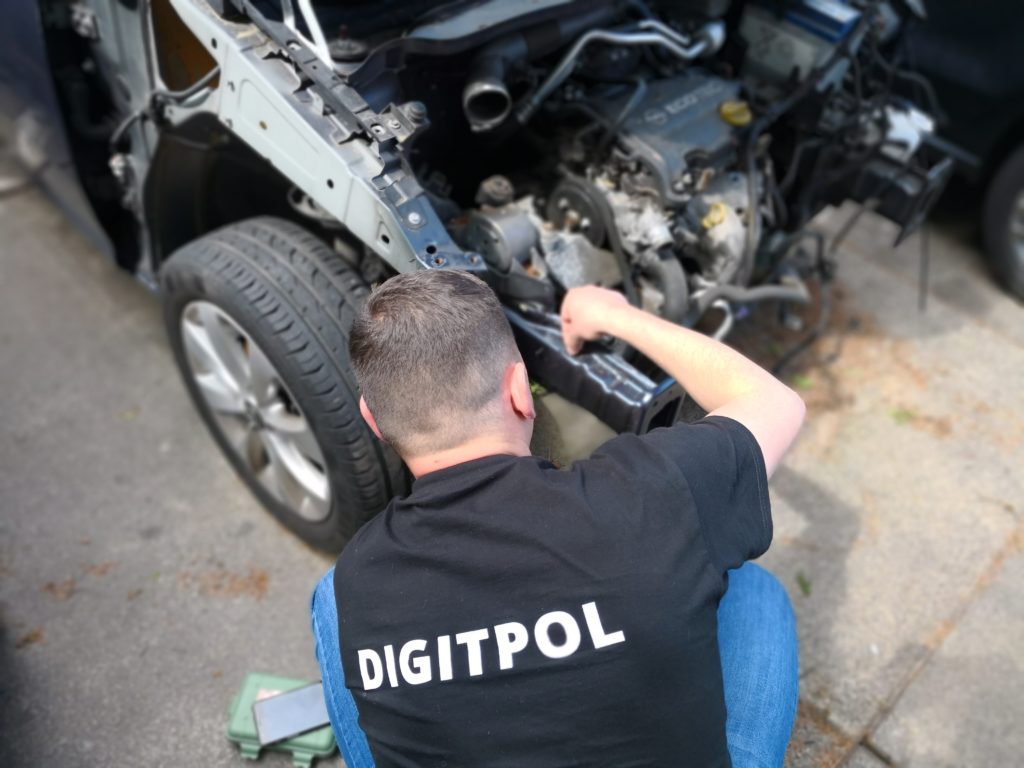CrashCube Project
The CrashCube is a forensic tool to acquire data from vehicles involved in a collision, the CUBE technology was develop in a partnership between the Rotterdam Police, Launch Tech and in the later stage, Interpol. The development of the CrashCube concept is based on actual cases. In 2006 a computer forensic examiner Mr Martin Coyne founded and initiated the Freeze-Frame reading concept based on actual cases that were under forensic investigation.
The concept was advanced in 2009, jointly, into a full joint project to develop the specialized technology by the Netherlands Police with funding from the Netherlands Ministry of Justice in 2009. The project developed by the Netherlands Police was successful and based on the global demand the project was handed over to Interpol for further development. Today the technology is a Law Enforcement standard in vehicle forensics.
In 2009, A team of 4 colleagues worked on the development, 2 civilians and 2 Police officers, crash Reconstruction experts, one of which was the project manager. The project was a first to read data from European vehicles and has created a footprint in vehicle crime related investigations. Since 2012, the CUBE project was handed over to Interpol and Launch Tech.
Since 2012 Mr Coyne nor Digitpol has no involvement in the CrashCube, development or management, the project is under management of Launch Tech co ltd since 2012.
The hardware and software data extracted can be used by accident reconstruction teams to build a highly accurate picture of the accident conditions. Some examples of the data that can be extracted are:
- Vehicle speed
- Seat belt usage
- Time of accident
- Steering angle
- Moment of brake application
- Engine rpm
- Engine temperature
How is it used?
Data from vehicles can only be used in correlation with physical evidence and with crash data reconstruction data, digital data from vehicles is not sufficient on its own, often digital data correlates with physical evidence. Collision reconstruction experts carry out an investigation using physics and engineering principles, these methods are always first and digital data can be concluded as additional supportive material. Since 2009 data from airbag modules and engine control units has become more advanced however each module has data limitations.
How is it presented in court?
The CrashCube and all other forensics tools produce a report from a an extraction of raw data which is the full evidence, raw data is obtained from the vehicle or module, the raw data contains HEX data and the examination of raw evidence is completed with a hash value. In the case of the CrashCube, the raw data file is all the data extracted from the vehicle. The PDF or report is generated from the raw data file (evidence) and is not sufficient to present on its own, data can only be only be presented together with the raw evidenced (HEX) file or when the raw evidence is available for inspection by other parties. CrashCube reports can only be presented together with crash reconstruction data.
Current Status:
Originated by Rotterdam Police in effort to create a tool capable of imaging ‘freeze frame’ event or other stored vehicle data from vehicles manufactured 2006 on-wards (pre EDR Europe).
- 2009/2010 – European partners engaged to assist in data collection, beta testing and proofing of the platform for two initial devices, CrashCube and VinCube.
- 2010/2011 – Testing with partners and NFI including vehicle crash testing
- 2011/2012 - Due to the re-organization of the Dutch Police, the Project was handed over to Interpol and Launch Tech.
Deployment
2012/2013 – Development of Phase 2.
- 2013/2014 – The UK, a team of experts led by Mr Qiu and Mr John Rusted, conducted the research and development based on live cases.
References:
Netherlands Forensic Institute: https://www.forensischinstituut.nl/actueel/nieuws/2011/11/30/internationale-testfase-crashcube-van-start
Finding crash-related data in vehicles
https://www.insuranceireland.eu/newsletters/fraudconf/index.html
https://www.thetimes.co.uk/article/cause-a-crash-get-shopped-by-your-car-td2w2x2f90j
https://www.pzc.nl/auto/crashcube-voor-het-analyseren-van-ongevallen~a2d4360a/?referrer=https%3A%2F%2Fwww.google.com%2F



